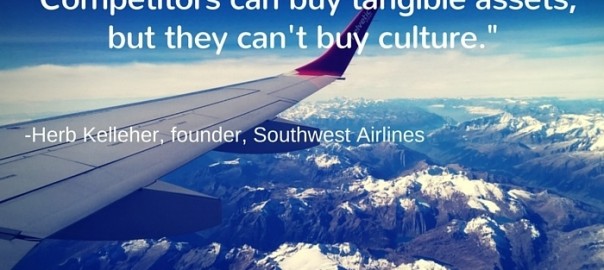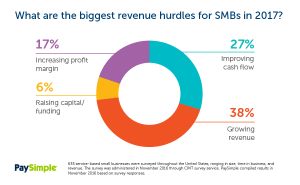
The way we think about work today is dramatically different from the way our parents viewed it. Most of us have the ability to work anywhere, at any time, and we want our work to be fulfilling. Unlike generations before us, we’re far less likely to spend our entire career at a single job.
This is especially true for Millennials in the workplace, who are more likely to change jobs more frequently. So what attracts top talent to your company these days if it’s not the promise of job security or even higher pay? It’s your company culture—that intangible factor that guides your values, beliefs and practices.
Organizational culture isn’t only essential for recruiting and retaining great employees.
It impacts the way they work, how they’ll treat your customers and, over time, how the public perceives your company.
If you don’t get your culture right, everything else you try to accomplish will feel like an uphill battle. On the other hand, when you have a great culture, everything else seems to fall into place.
Here are three companies that have developed exceptional organizational cultures—and what leaders can learn from them.
HubSpot

HubSpot takes culture seriously—so seriously, in fact, that the company spells it out in a presentation viewed not only by every new hire, but also by more than 2 million people.
While the marketing automation software company offers great employee perks like unlimited vacation time, standing desks and an abundance of healthy snacks, that’s just part of the equation. The company is guided by seven core values, including transparency, autonomy and exceptional customer service. When hiring, its leaders look for individuals who have characteristics that align with those values.
It looks for employees who have HEART—those who are humble, effective, adaptable, remarkable and transparent. In HubSpot’s own words, it hires not just to delegate, but to elevate. All companies should strive to do the same.
Zappos

Unlike many retailers, Zappos takes hiring seriously and hires slowly. Employees have to pass a cultural fit interview in which they are asked to describe their ideal work environment, the management style that allows them to produce their best work and the relationships they’ve had with co-workers at previous jobs, among other things.
Finding employees who fit your company’s values isn’t enough—the best companies make sure those values are reinforced through training, onboarding and beyond.
Zappos requires every employee to spend the first-month manning phones in their call center and take shifts during busy times, rather than hiring temporary employees.
If an employee realizes the job isn’t for them after those first few weeks, Zappos actually pays them to quit. The company’s leadership realizes it’s more cost-effective to sacrifice a few thousand dollars letting someone go than to keep someone who isn’t fully committed.
Southwest Airlines

Putting employee satisfaction ahead of customer satisfaction seems counterintuitive, but Southwest Airlines doesn’t see it that way.
“We believe that if we treat our employees right, they will treat our customers right, and in turn that results in increased business and profits that make everyone happy,” the airline explains in a blog post about its company culture.
According to Southwest, having happy employees leads to happy customers, which leads to increased profits, which ultimately leads to happy shareholders.
Culture at Southwest is based on three components:
- A Warrior Spirit: Working hard, desiring to be the best, being courageous, displaying a sense of urgency, persevering and innovating
- A Servant’s Heart: Following the Golden Rule, putting others first and being proactive
- A Fun-LUVing Attitude: Maintaining perspective, enjoying your work, celebrating success and being a passionate team player
To keep employees motivated and inspired, CEO Gary Kelly makes it a point to give public praise each week to an employee who has gone the extra mile for customers. The airline also recognizes employees in its monthly Spirit magazine and in a series of internal videos that tell stories of exceptional service.
The company also prioritizes customers and isn’t afraid to take risks to keep them happy. When every other airline was charging baggage fees, Southwest decided against it—and was rewarded with $ 1 billion in annual market share, thanks in large part to customers wanting to avoid baggage fees.
Transforming Organizational Culture
Great culture takes time to develop, and it’s always evolving. For large companies with deeply ingrained structures and processes, transforming organizational culture to adapt to a changing marketplace can seem like a monumental task.
Just like any transition, it requires leadership with exceptional change management abilities. Leaders need to minimize the uncertainty that naturally comes with change by being forthcoming with information and reassuring employees throughout the process.
If your company is in the midst of cultural change and you need some guidance on how to lead the way, join me at 12 p.m. EST next Thursday for a free webinar. I’ll talk about the factors that contribute to culture and how to lead cultural transformation. I’ll also answer any questions you might have, so feel free to leave them in the comments below.
Business & Finance Articles on Business 2 Community
(127)
Report Post







